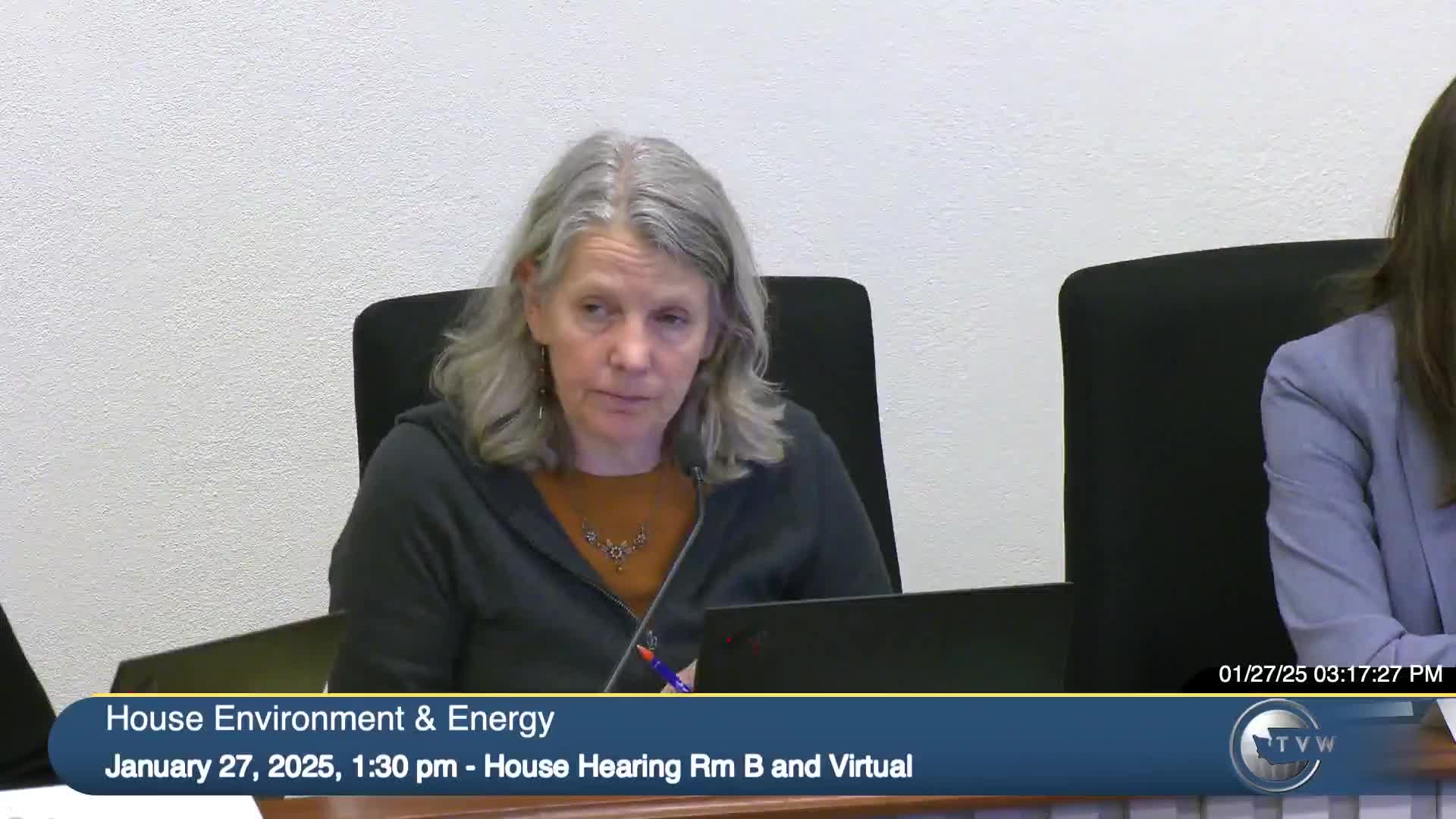Bill would bring thermal energy networks under UTC oversight and require utilities to plan for them
Get AI-powered insights, summaries, and transcripts
Subscribe
Summary
House Bill 1514 would subject thermal energy networks to UTC oversight for larger systems, provide exemptions for small or preexisting systems, and require utilities and Commerce to include TENs in planning and technical assistance.
House Bill 1514 would subject thermal energy companies (utility-scale systems that deliver heat through a network of pipes) to regulatory oversight by the Washington Utilities and Transportation Commission (UTC) while carving out exemptions for small or already operating systems.
Committee staff explained that thermal energy networks (TENs) currently fall outside UTC regulation unless operated by a gas or electric utility. Under the bill, TENs serving five or more independent customers or more than 250 households would come under UTC jurisdiction; systems operating before July 2025 or serving small customer sets would be exempt or could opt in.
Proponents — including Quarix (a TEN developer), port and municipal sponsors, and project operators — supported proportional UTC regulation and urged clear, scale‑appropriate rules. ‘‘Quarix is supportive…provided its regulation is proportional to the size of the micro thermal utility,’’ testified Clarence Clipper.
Ports and project sponsors cited experience in Bellingham and Seattle where local district-energy systems serve housing and redevelopment sites and said UTC oversight would provide consistent customer protections. Michael Hogan from the Port of Bellingham described a situation where the port created a bespoke oversight arrangement for an affordable housing TEN customer because UTC jurisdiction did not apply.
Utilities urged caution in one specific area of the bill. Avista’s witness asked that a requirement in Section 25 — directing large electric utilities to model TENs in their integrated resource plans and to consider potential discounted rates for TENs — be removed or clarified because modeling location‑specific discounts and granular TEN assumptions in an electric IRP would be difficult and could be misplaced.
The bill also requires Commerce to award grants to local governments to map potential TEN corridors and build local technical expertise. Witnesses from contractors and mechanical firms said TENs offer a cost‑effective pathway to decarbonize heating systems at scale and can leverage local union workforces.
The committee did not take a vote during the hearing.
